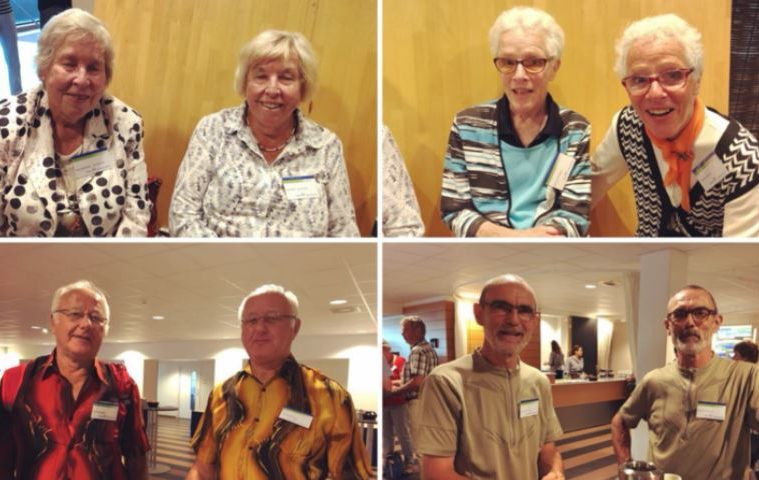You might have thought that you were seeing double at UMC Amsterdam’s Alzheimer Centre. Approximately 50 pairs of identical twins came together for an update on the Twin60++ study, an Alzheimer research project focused on twins. The oldest participants are 95 years of age.
In the Netherlands, about 270,000 people suffer from some form of dementia, 70% of whom have Alzheimer’s disease. Researchers are still puzzled. Why do some people get the disease while others do not? To find out, a large study was set up including 204 twins, which has already yielded remarkable initial results.
Dutch Twin Register
The study into the development of dementia sourced its participants from the Dutch Twin Register, which was set up by VU professor Dorret Boomsma in 1987 and now includes 87,000 twins and multiples. The work done by her and her group has taught us a lot about how hereditary factors contribute to health and behaviour.
The dementia study is based on monoamniotic twins over the age of 60, who did not show any signs of incipient dementia at the start of the study. The researchers then investigate which hereditary and environmental factors play a role in the development of the disease, as well as studying the course of Alzheimer’s disease.
Genetically identical
Monoamniotic twins are genetically identical, and that is exactly what makes this study so valuable. It lets researchers investigate whether differences in lifestyle and/or environmental influences can play a role in the development of dementia if one of the twins develops the disease, while the other does not.
Researcher Anouk den Braber explains that the genetic component of Alzheimer’s disease is a lot less significant than expected. “Our twin research shows that 54% of the change can be explained by identical genes. The remaining 46% is caused by external influences, which is remarkable.” External factors and lifestyle could possibly play a major role in the development of this disease, and with this research project she aims to unravel the precise nature of these factors.
Worth their weight in gold for science
From a scientific point of view, twins are incredibly interesting and they can be of great importance. The researchers hope to collect valuable information that will make it easier to recognise Alzheimer’s disease in the future, as well as aiding the development of new treatments. There is currently still no medicine that can be used to treat the disease properly.
If you would like more information or are looking to participate in a study, please visit the Dutch Twin Register.






